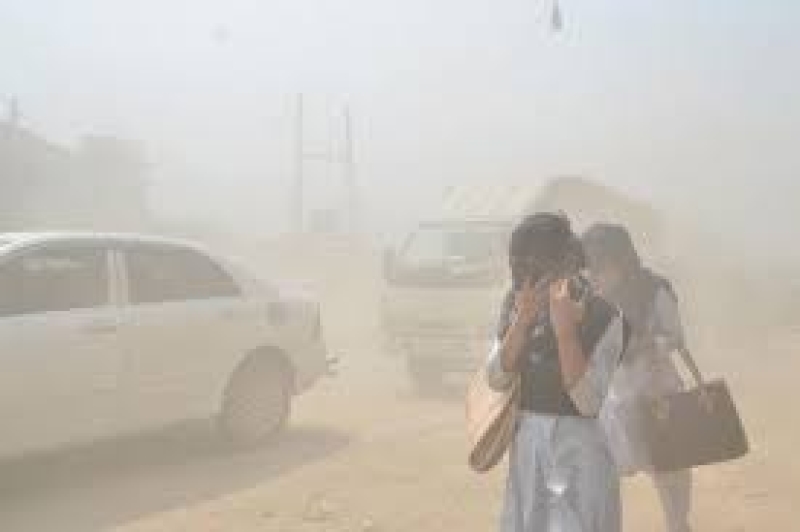- Two brothers killed in Narsingdi over extortion refusal |
- Death toll from Myanmar earthquake surpasses 1,700 |
- Children’s entertainment centres buzz with Eid crowds |
- PM Modi greets Dr Yunus, seeking Dhaka-Delhi stronger bond |
- NCP to Push for Reforms After Eid |
Dhaka's Air Remains Unhealthy Despite Reduced Activity

Despite a significant reduction in traffic and fewer people out on the streets, Dhaka's air quality remains in the "unhealthy" range.
On Sunday noon, the city ranked fifth globally for the worst air quality, with an AQI score of 154. This level of air quality is classified as "unhealthy," posing a health risk to residents, according to the AQI index.
Cities like Kathmandu, Chiang Mai, and Kuwait City topped the list with AQI scores of 200, 189, and 160, respectively.
The AQI, which measures daily air quality, categorizes pollution levels based on its potential health impact. Air quality is considered "moderate" when the AQI is between 50 and 100, "unhealthy for sensitive groups" between 101 and 150, "unhealthy" between 151 and 200, "very unhealthy" between 201 and 300, and "hazardous" when the AQI exceeds 300.
In Bangladesh, the AQI is based on five major pollutants: particulate matter (PM10 and PM2.5), NO2, CO, SO2, and ozone.
Dhaka has long struggled with air pollution, especially during the winter months, though air quality typically improves during the monsoon season.
According to the World Health Organization (WHO), air pollution causes an estimated seven million deaths globally each year, primarily due to increased mortality from heart disease, stroke, chronic respiratory diseases, lung cancer, and infections.

